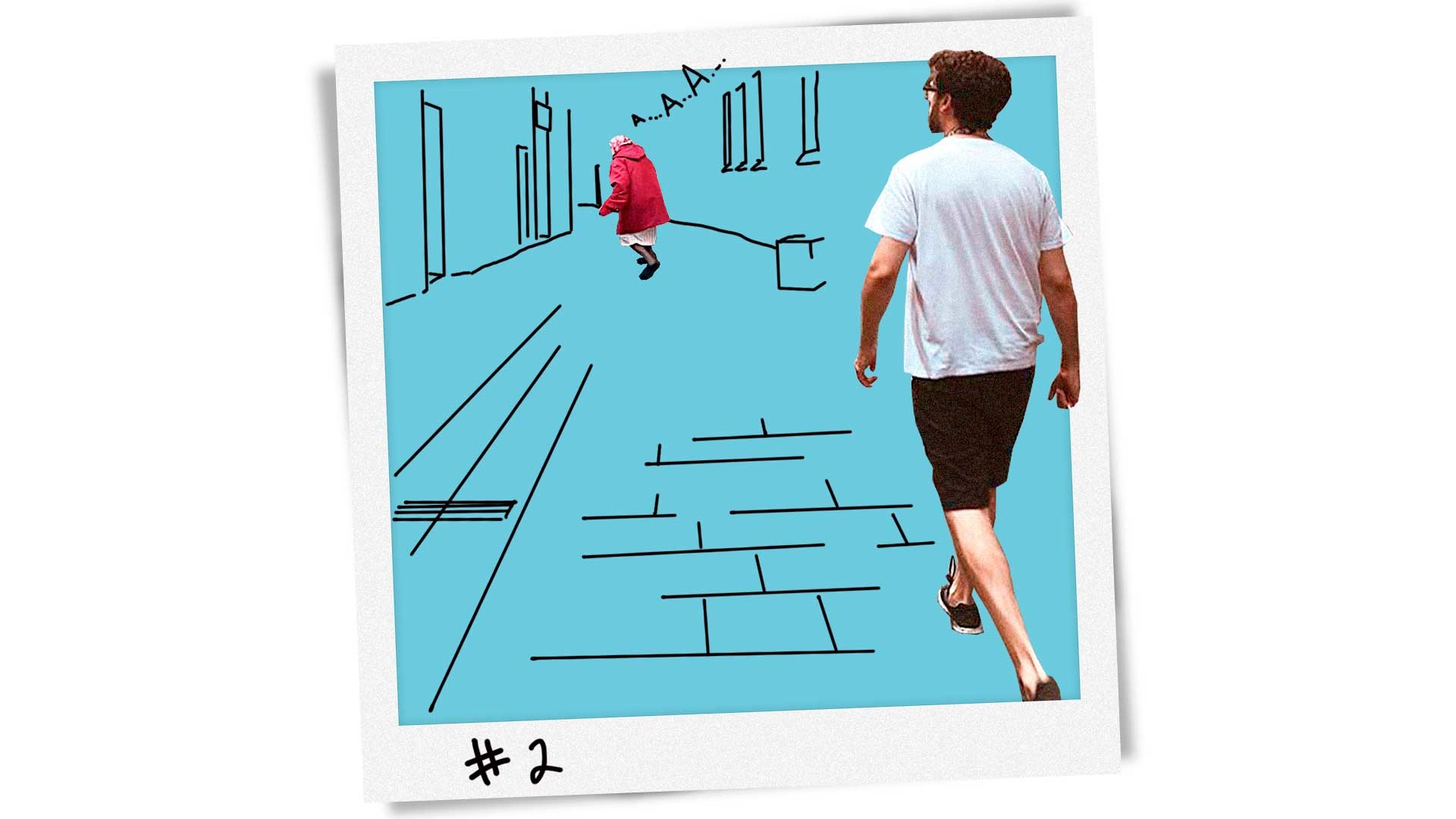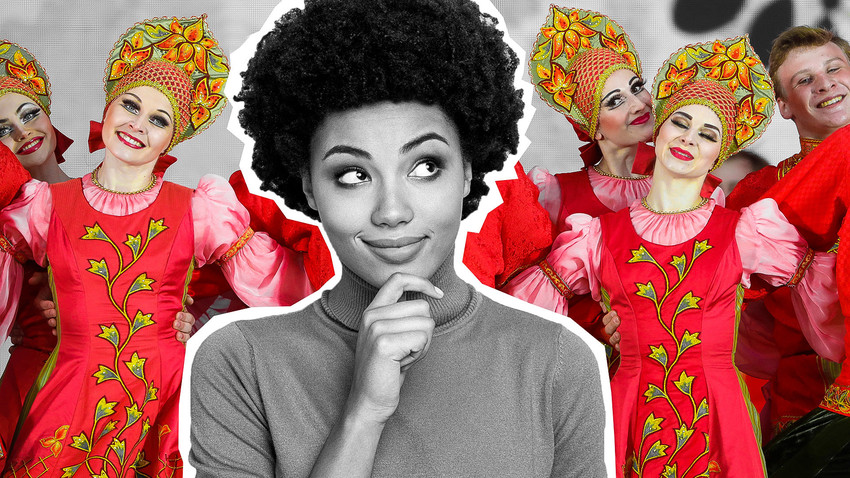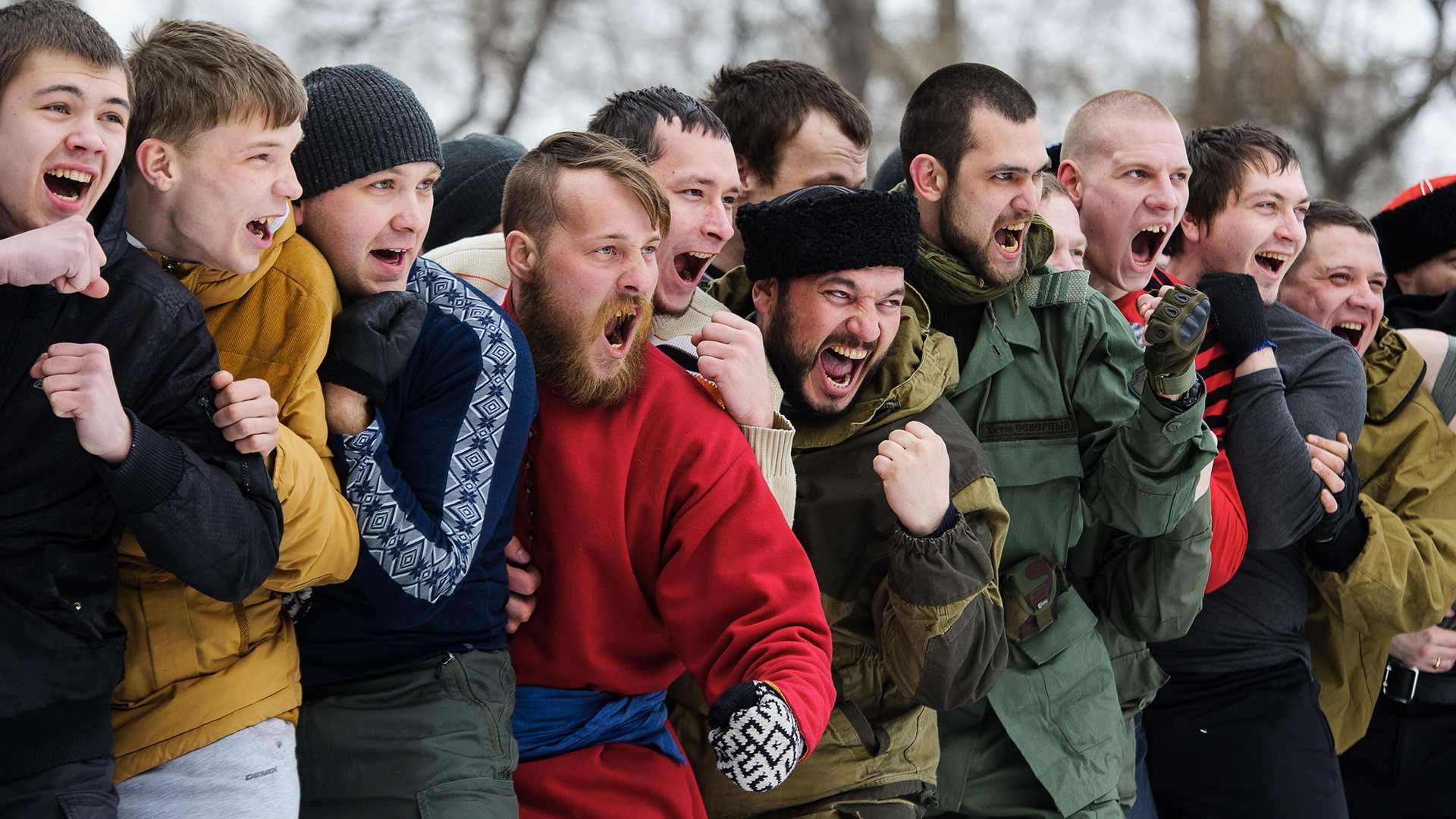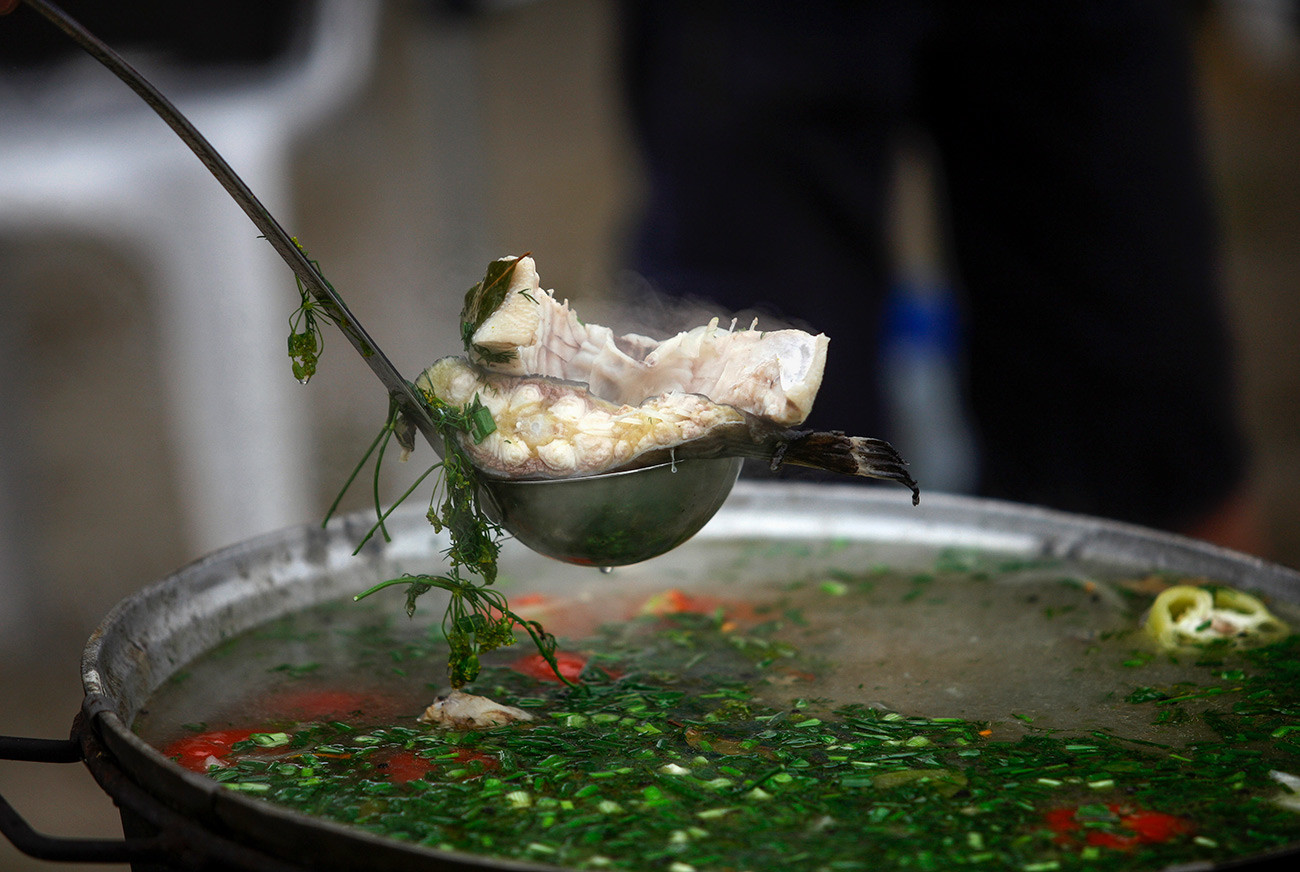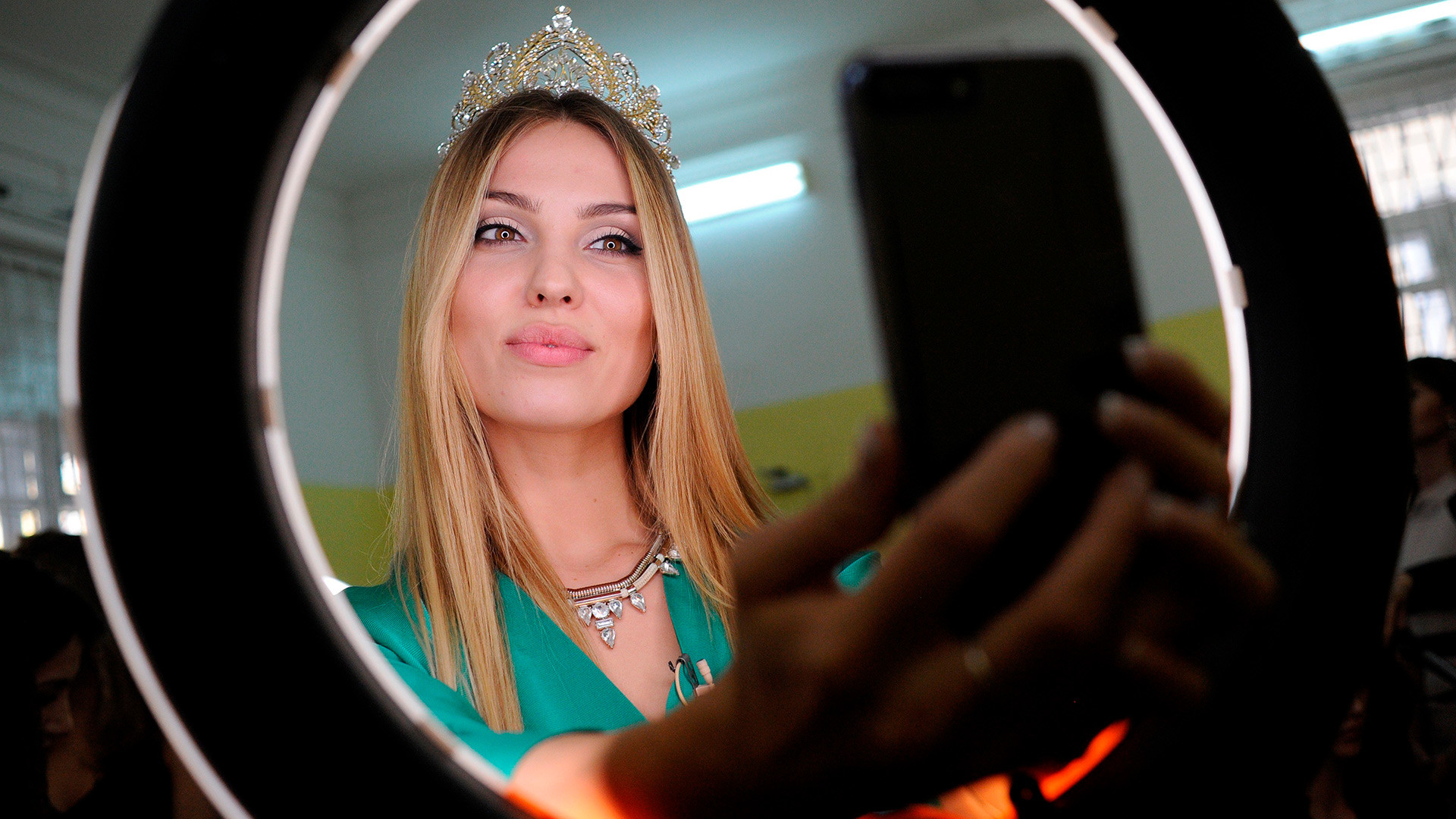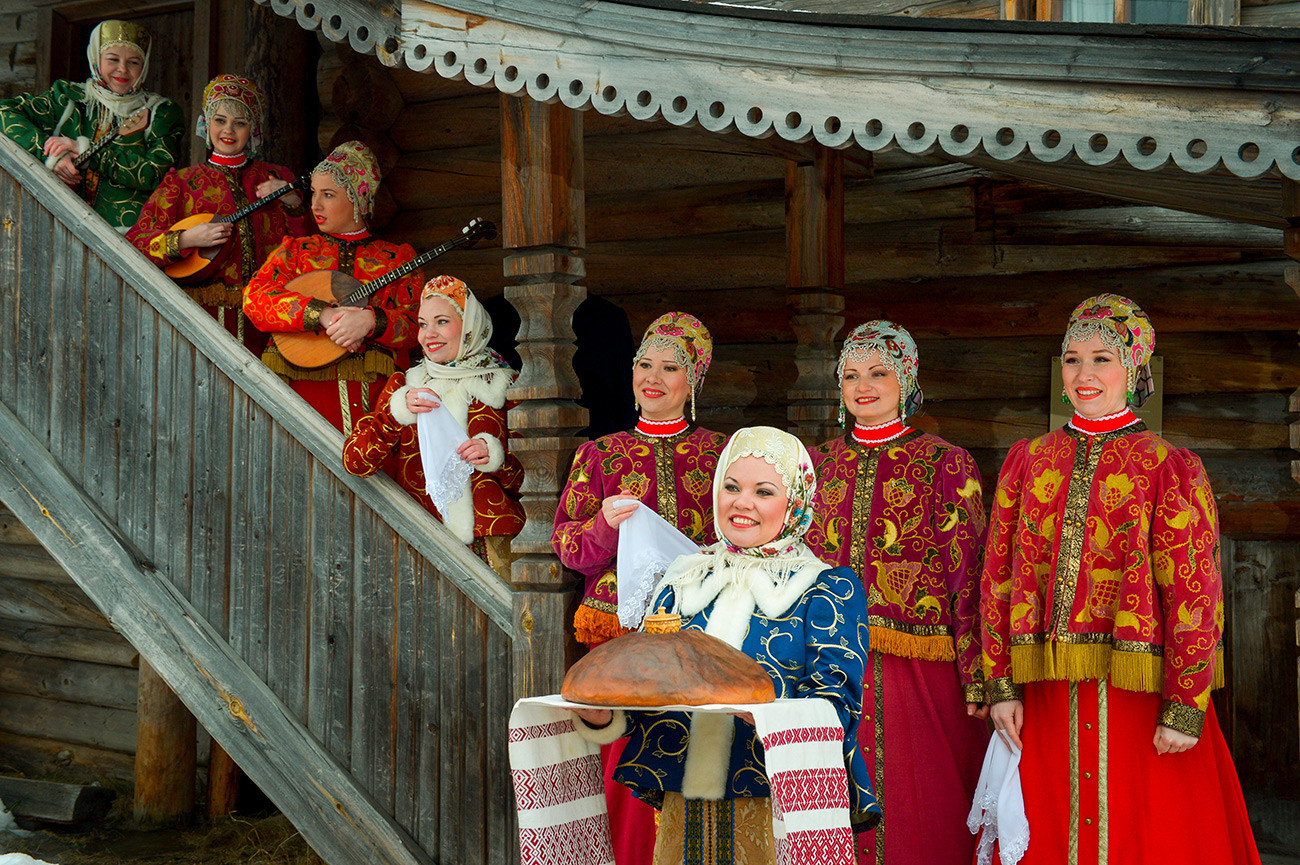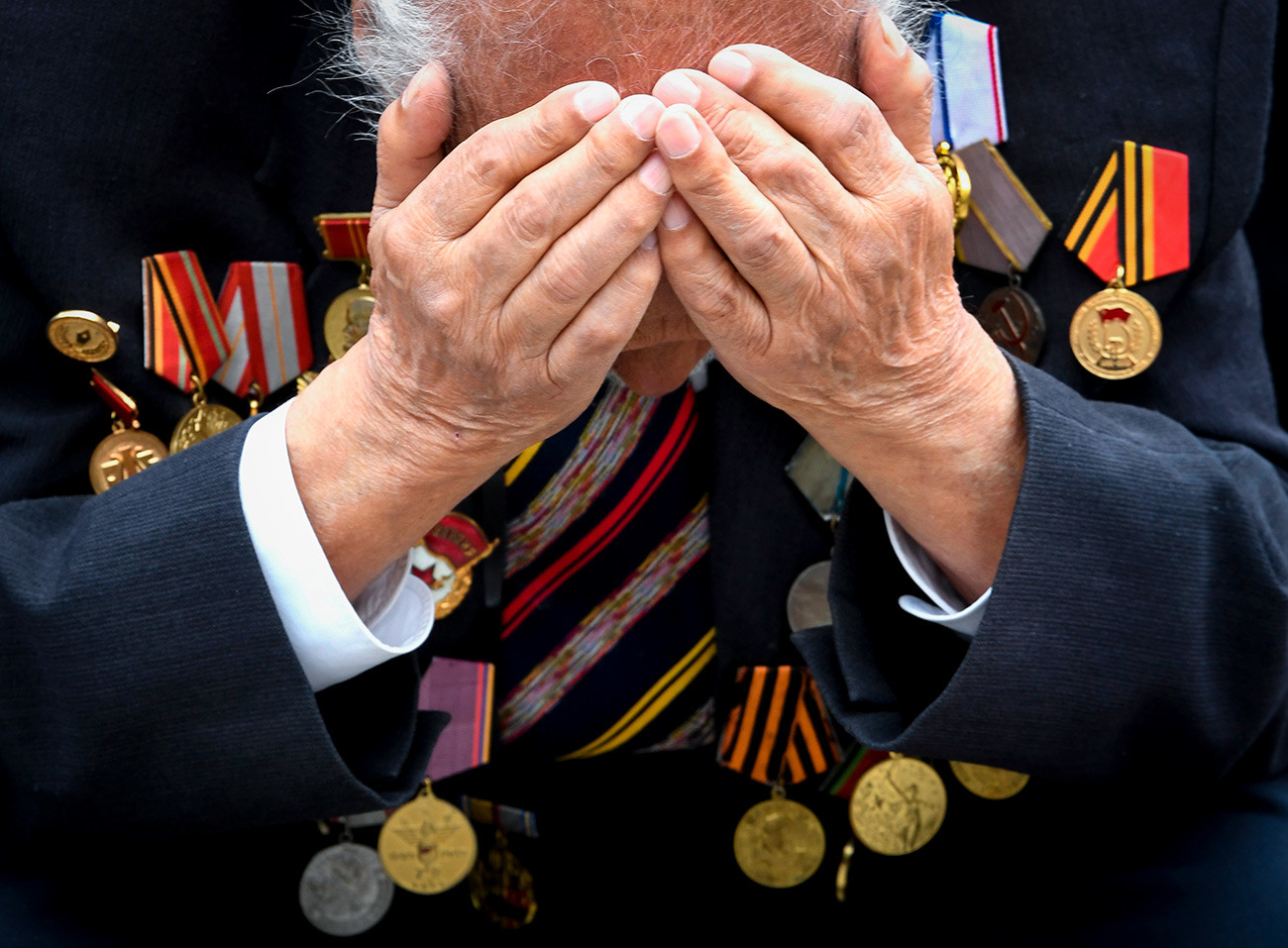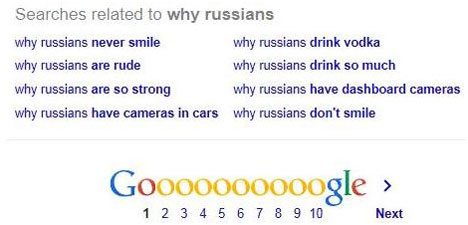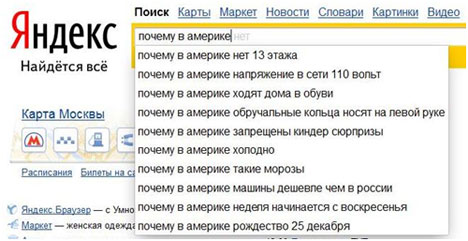What americans think about russians
What americans think about russians
5 things about Russians that Americans won’t understand
1. Don’t expect anyone to be on time
After a combined total of 10,000 hours waiting for Russians, I feel I’m due to a medal for my expertise on the subject. Once, while I was waiting, fed up, I opened my phone and asked Google, “Why are Russians always late?!” and Google responded with an article about how different cultures perceive time differently which leads some cultures to often be late by western standards.
What I took from this was that when I am standing around looking at my watch and seeing that my friend is ten, fifteen, fifty-two minutes late, he is looking down at his watch and seeing a pigeon, a bar of soap, or perhaps a fish—probably a fish.
2. If you’re friendly, you’re likely going to follow me home, murder me, and then eat me
If you are walking behind an older woman on the streets of Russia and you notice that she keeps looking back at you, frowning, speeding up a little bit, and then eventually stopping to let you pass, don’t be alarmed. The reason she is doing this is simply because you’re probably a psychopath intent on following her home to chop her to bits and eat her.
This goes doubly so for trying to be personable in line somewhere. In America, I will often be next to someone in line who will say something like “how’s it going?” “did you hear about Climate Change?” or, “what do you need all that rope for?”
But in Russia it is different. I stand in line quietly suffering together with others, waiting my turn to get yelled at for not having enough change. And, if someone next to me in line strikes up a conversation, I feel awkward and edge further away because they’re probably a psychopath intent on following me home to chop me to bits and eat me.
3. Who needs Target when you’ve got some plywood and nails?
When my mother came to Russia and saw my kitchen full of mismatched chairs and a stained wobbly table she asked: “Well, where is the Russian Target?”
If you haven’t been to America, Target is basically Walmart in a collared shirt and Walmart is the backdrop to at least 50 percent of those photos you’ve seen of obese Americans motoring their way through aisles of junk food and fake jewelry.
The thing about Russians is that they know how to make things last and aren’t going to throw something away just because it is broken. It is a quality I admire very much. In a world of ever-growing wastefulness, Russians conserve what they have and make things work without running out to buy the next made-to-break table, chair, sofa, bed, president, etc. that they can find.
4. Russians understand you even if you don’t realize it
Americans who watch the news will often see Russian President Vladimir Putin speaking Russian while using an English translator even though he understands English perfectly. There are any number of reasons the president might choose to do this, but it is a common practice among many Russians I meet (unless those Russians happened to be sloshed.)
Sometimes I will find myself speaking to a group of Russians where someone will listen to me speak English and then respond in Russian to their friend, who will then translate it to me. Or a Russian might simply sit quietly and listen and not say anything at all.
Assuming they don’t understand is a foolish mistake. Many Russians understand English very well but do not like to speak it because they are shy about their accent or worry about making mistakes, or maybe they are just waiting for you to reveal yourself as a psychopath intent on following them home to chop them to bits and eat them.
(This also goes for Russians who go abroad and think no one around them can speak Russian.
я слышу тебя [I can hear you].)
5. Russians have a weird obsession with tea
“Do you want me to buy something for tea?”
I learned about Russians and tea long ago in Thailand when I met a Russian with a portable water boiler who told me, “Russians love tea.”
And I said: “Like the British?”
And he said: “Screw the British”
If you have Russians over to your apartment, be prepared with tea and something to go along with it; cookies, cakes, etc. (In general, when you visit a Russian’s home, bring something.) Even if someone is just stopping by my apartment, I will often offer tea or coffee, as happens whenever I visit a friend. Russians drink tea when they’re happy or sad, when they are trying to sober up, after lunch, after dinner, and before bed. And I imagine that if you were to come across a Russian who followed you home to chop you to bits and eat you, they’d likely have you with a cup of tea.
Benjamin Davis is an American journalist and author of The King of Fu living in St. Petersburg, Russia. Now, he primarily writes magical-realism flash fiction stories about Russian culture, self-deprecating mishaps, and babushkas: benjamindaviswriter.com.
If using any of Russia Beyond’s content, partly or in full, always provide an active hyperlink to the original material.
The Biggest Culture Shocks Americans Face in Russia
Lately, with all the news coverage (the Olympics scandals and the investigation into the 2016 US election), I’ve caught myself wondering what it’s like on the other side. In particular, what culture shocks do Americans face in Russia? On top of that, what do average Russians think about Americans who come for a visit? I took to Quora and some of Matador’s editorial content for some insight.
On first impressions and Russians’ disdain for small talk
Americans are chatty and often quite loud. This is in stark contrast to many Russians, as Thomas Breckinridge explains on Quora: “In American culture, we’re much more free with general information. Our way of doing things is to understand the whole so that the parts can be modified as needed to achieve the overall goal. Russians very much go the other way: no one will ever give you the big picture of what’s going on, only the barest information necessary to complete the next step.”
Do Russians enjoy chatting with Americans? “That totally depends on the American tourist,” notes Boris Ezomo on Quora. A fitting answer, I suppose. This holds true for people of any nationality, traveling to any destination. Thinking back to my friend from Moscow, our conversations, while enjoyable, were often quite brief. Plenty of time passed in silence, and I was reminded of an episode of Invisibilia in which they covered the difficulty of working at McDonald’s in Russia, simply because the employees are expected to smile so much. This could explain why: “Russians don’t like to waste their time on empty words that don’t really mean anything: we are very direct and prefer to get straight to the point of the conversation,” Marina Vinogradova explained in a piece for Matador. “If you meet your neighbor and you don’t really have anything to say to him, you don’t stop for a chat about the weather and the latest football game. You just say hello and carry on with whatever you were doing.”
Matador Network editor, Morgane Croissant, traveled to Russia and has nothing but positive things to say about her interactions with the locals: “Although they may not be chatty, the people I dealt with showed genuine interest in me and my trip and were extremely helpful — my Russian was very approximate, but the people I asked for direction or help always made sure I was given the right information and was not getting lost.” A great example of the locals’ kindness is when Morgane was crossing the border between Belarus and Russia. She explains: “I had to fill in an immigration form that was in entirely in Russian. I was not able to understand 80% of it, so, without asking, the older train employee in charge of my car brought a full teapot and cups into my compartment and spent 30 minutes filling it up with me.”
I did ask my friend about traveling to Russia and she encouraged it, noting that both Moscow and St. Petersburg are quite accustomed to tourists. Just don’t bring up politics. “Politics are a different matter,” noted Laura Hancock via Quora. “But in terms of the people, yeah. Russians seem to like Americans, or, at least, they liked me. And I liked them.”
On lifestyle differences
How do four weeks of paid vacation sound? Pretty darn good to most Americans, of which 23% receive no paid vacation time at all. “People get at least 4 weeks of vacation a year and a couple trips a year are not unheard of,” explains Maria Guzenko on Quora.
Maria also noted the efficient public transit in Moscow and walking culture as big pluses, when compared to the States. “I really enjoyed the ‘walking culture’ in Russia, where young people meet up and go for a walk through the city (гулять). Instead of sitting on your butt in a bar, you get to explore the city and be physically active.”
Russians aren’t big on living up to expectations, it seems. “I like the fact, that nobody pressures you into anything,” Dmitriy Kim said on Quora. “Like there is no accepted common opinion about anything, therefore you can choose your life path without being looked upon with judgement. This cynicism and nihilism make life here somewhat relaxed.”
Members of the LGBTQ community may offer different opinions, however, particularly depending on the location within the country, with many areas being historically difficult for LGBTQ people to live.
On Russia’s flair for the dramatic
“Russians are much more superstitious than Americans,” notes Kirill Valyas on Quora. Marina Vinogradova agreed in her Matador piece: “Our folklore has myriads of superstitions relating to all spheres of life. Even if you don’t really believe in mystiсism, hundreds of weird superstitions constantly pop up into your head: do not shake hands over a doorstep or you will have a quarrel. Do not sit at the corner of the table or you will never get married. Do not return to the house if you forgot something or you will have bad luck during the day.”
The dramatics of social interactions are quite different as well, as Lee The on Quora describes the Russian expressions as such: “An artistic leaning towards the florid, by American standards. If you look at Russian ice dancers at the Olympics etc. vs. American ice dancers, the Russian dancers are doing, like Romeo and Juliet — ending with the double suicide of course, while the American dancers are being either kind of jazzy or cheerfully romantic. Likewise the costumes, with the Russians tending towards fluttery black and white stuff.”
On hospitality
Food and beverage-wise, soup, pancakes, tea, and of course, vodka, are big in Russia. All stand as a common base for social activities, Marina noted for Matador: “Many places in the world are known for their love of tea, but no one drinks as much tea as Russians do. I personally drink about 3 litres of tea every day: when I am cold, when I am bored, when I chat with my family, when I visit my friends, when I have a snack and before I go to bed.” Additionally, “‘Without soup, your stomach will dry up!’ my mom used to tell me.”
With all of these traditions and superstitions, it seems as though Americans have a bit of reading to do before landing in Russia. Maybe a bit of practice on that poker face is in order, as well. Working in our favor, however, is the embracingly friendly welcome Russians are known for when visited. Aleksandr Tikhonov brings up this point: “I’d like to add that Russians actually LIKE foreigners — including Americans, of course. We will ask a lot, tell even more, invite you somewhere, then probably eat, drink, and discuss a lot. We’re fun to hang out with, really.”
“Once someone crosses the threshold of your house, he gets the most comfortable bed, the softest slippers, and the greatest meal in the history of humankind,” Marina Vinagradova noted in her Matador article. “That rule applies to relatives, friends, friends of relatives and pretty much everyone else.”
What other nations think of Russia
Michael Metzel/TASS, Legion Media
Don’t mess with them
“Russia. They are some tough, hard mother-f*ckers. I know that there’s other language I could use, something less crude, but it wouldn’t be as accurate. Suffice it to say, Americans, even though we have some tough guys scattered about the population, are a bunch of cupcakes compared to the Russians.” (Joe Taylor)
“The meme for Russians is ‘战斗民族’ which means ‘people of war’. No matter what the reason is, they always seem to think it necessary to fight.” (Bo Sun)
“However, most Chinese people see Russia as a soldier who writes poems.” (Toestos Hook)
“It’s all in Hollywood movies.” (Halfman Huang, China)
Their food is not that great
“I’m an Englishman married to a Russian. Firstly, Russian people will tell you that there is no such thing as ‘Russian Cuisine’, only foods that go well with vodka… and they are only half joking. Secondly, Russian food (as all foods) vary from the utterly divine to ‘WTF is that?’. Ukha, a.k.a. fish soup. This falls into the WTF category. Everywhere I’ve been offered this it has been a grey dish-water slop with vague bits of something in it and a fish skeleton. Yep, a fish skeleton exactly like the cat gets given in a cartoon.” (Sean Clitheroe)
“When I ate in Russia, whether it was potato, or chicken, or insert other bland food, it was boiled to death. Beyond recognition. Or it was swimming in butter and cream, like kasha (porridge). And ugh, my personal least favorite — okroshka. I’m sorry, but kvas (a fermented bread drink) and kefir (basically buttermilk) should not go in a dish together. Just no.” (Naï Damato)
“Russian foods in my experience aren’t any more terrible than those from countries like Sweden, where they also eat a lot of herring and mayonnaise.” (Brian Dong, California)
Their girls are pretty, their men not so much
Andrey Lyubimov / Moskva Agency
“I was baffled to see so many couples in their 40s and 50s consisting of an overweight hairy middle-aged man married to a woman who seemed to have aged incredibly well like Halle Berry. Even among younger couples, there are many visibly unattractive, brutish men dating supermodels.” (Ryo Yokoe, Japan)
“I am a Brit. My girlfriend is Russian/Ukrainian. Of course she is beautiful. We were both using eHarmony, a popular internet dating site. We arranged to meet up in a bar close to where she lived. I did actually see her when she came in, but my initial assessment was ‘she’s stunning, but far too pretty to be the lady I’m looking for’. I kept on trying to spot my date and it wasn’t until she stood right in front of me that I realised that the stunning woman WAS my date.” (Andrew McLeish)
Art: really splendid and flourishing!
“I’m sure almost every Chinese knows some Russian songs, poems, and novels. Many Russian melancholic songs are like a tough man whispering some gentle words to you.” (Xiao Lin)
“The writers! Dostoyevsky… Solzhenitsyn… so many it boggles the mind. As a kid, I read a slender book of Russian proverbs and sayings. My favorites included “Every man is a hero to his dog,” and “Half a loaf of bread is bread, but half the truth is a lie.” (Cortney Hollister, USA)
Russians care what others think of them
“Most people we met hadn’t had the opportunity to travel a lot outside of Russia, so they were excited to hear our stories from abroad. One question that was asked by everyone was ‘what do foreigners think of Russia?’ It’s the only country I’ve been to where people have asked me this consistently and actually care to know. I think that speaks a lot about the people.” (Amanda Tran, Australia)
“Few nations in the world that once were great powers and later lost out ended up back in the same place. Russia was in a way the first to break this law. After going almost financially bankrupt in 1991, the nation went through a severe leadership lacuna, and to add insult to injury, there were separatist movements in some sensitive zones. The people of Russia were literally ready to give away everything to get back their glory.” (Sayak Biswas, India)
They’ve suffered and achieved a lot
“They are a nation that has suffered greatly (think of the Stalinist purges and the incredible loss of life in WWII) and that has left an indelible mark on the psyche of their nation. Yet they have given the world a taste of Russian exceptionalism with their art, literature, and zest for life.” (PJ Clarke, USA)
“You beat us into space. (But we beat you to the moon, IN YO FACE! ‘Merica!)” (Fredrick Wheatley, USA)
“Most Americans think of Russia (if they think of it) as a vast, cold place that is still quite traditional and conservative —- a place that still resists the adoption of modern ‘Western values’. That all may sound like a negative impression, but Americans also tend not to write off whole national populations as irredeemable or awful. Before and after my own visit to St.Petersburg in 2009, not one person in the US I talked to about the trip had a negative response. People were curious and envious and intrigued, but no one said, ‘Russia — yuck!’ or anything like that.” (Joe Roberts, USA)
“I learned the Russian language for three years in the university, with the Russian name Tolya, which my teacher gave me. Russia is a country with a gorgeous and proud history. Russia is a land of disasters and self-redemption, with a long history filled with both weirdos and heroes”. (Du Shu-Jie)
Russia is cheap
“Russian prices are very cheap. We mostly paid around 250 rubles ($3.50) when eating out, groceries are affordable (from a foreigner’s perspective), fuel is cheap, and trains are a good price given the distances you travel.” (Amanda Tran, Australia)
“I stayed in Russia for a month at the time of 2018 FIFA World Cup, arguably a very bad time to visit for a budget traveler, and I spent close to 100,000 Indian rupees ($1,400) in 30 days (everything included, even the flights). I personally think it was a bargain!” (Nirlendu Saha, India)
Pariah country
“I’ve always loved Russian history. Russia is part Europe, part Asia, and it does not fit in either. Russia has never been truly accepted by other nations. Even with the inbreeding of Russian tsars with European royalty, they never seemed to totally be trusted and fit in.” (Leonard Wolff, USA)
Russians are real
“You don’t do fake happiness. Smiles are reserved for when they are needed instead of all the time. Russians strike me as quiet, reserved people who just don’t give a damn until it’s truly appropriate. Russia is more real than America in some instances.” (Fredrick Wheatley, USA)
“The people! What I’ve read about them…they don’t smile like we Americans, because they seem to think it’s disingenuous. Good point.” (Cortney Hollister)
“Many of us see them as a contented group of people who want nothing much in life. They just want to be comfortable — with basic amenities, bread, cigarettes, and vodka, send their kids to school, take care of their old ones, be respected, and die peacefully. They’re not aggressive as many think.” (Soogun Omoniyi)
If using any of Russia Beyond’s content, partly or in full, always provide an active hyperlink to the original material.
Reconsidering Russia and the Former Soviet Union
What Do Average Americans Really Think of the Russians?
Terminal Tower, Downtown Cleveland (Photograph by this writer)
But what do average Americans really think of the Russians?
To answer this question, I set out on a journey through two cities in the American Rust Belt state of Ohio: Cleveland and Columbus.
My mission was to go diners, bars, construction sites, barber shops, and hair salons and talk to working Americans about the Russians. Overall, I interviewed over 30 persons of various professions. I took copious notes, with the permission of all my respondents. The only people who declined did so because they did not have the time. All interviewees were anxious to respond, some to the point of interrupting others. The answers that I received were far more nuanced than one might expect.
Searching for the Russian trace in Cleveland
Home to large communities of Eastern Europeans and post-Soviet peoples, the city of Cleveland is no stranger to the Russians. In the 1930s, celebrated Soviet satirists Ilf and Petrov scrambled to find directions to the city. In the 1950s, Anastas Mikoyan visited the city as part of a larger tour of the US. Upon catching sight of Cleveland’s Terminal Tower, tears reportedly came to Mikoyan’s eyes as he recalled a familiar landmark from home: the Lomonosov Moscow State University.
“Reporters who stood close to him as he looked at the downtown skyline swear that the old Communist’s mustache twitched,” wrote Massachusetts-born Cleveland journalist George E. Condon. “His eyes were misty as he raised an arm in comradely approbation and said: ‘Now you’re talking! This is my kind of town!’”
My first stop in Cleveland was the Clevelander Bar & Grill in the city’s downtown on 27 December 2016. After ordering a beer, I asked the people behind the bar about the Russians.
“Can we get along with them?” I inquired.
“Look, if there was a war or something, I would want Russia on my side,” said the bartender, “They’re big and tough, man. Who was the guy who led them during the war? You know, with the mustache?”
“You mean Stalin?”
“Yeah. He was tough, man.”
“What do you think?” I asked the barmaid.
“Of course, we should have them as our allies,” she said. “We need to have a dialogue with them, but I don’t trust them. You know what they say: keep your friends close, but your enemies closer. Still, I don’t trust Russia. It’s a very scary country.”
“Why do you think Russia is scary?” I asked.
“I dunno. That’s what the media says,” she responded. “However, I don’t think the people are bad. Our neighbor is a Russian. He’s married to a Serbian woman. We have no problems with them. In general, I think that people can get along. The governments can’t. That’s the problem.”
Later, I walked down the street to a Subway restaurant. After ordering a sandwich, I casually began a conversation about the Russians with the owner and his assistant, both middle-aged, round and jovial African-American men.
“The Russians are tough,” said one of the men. “They mean business. You don’t wanna mess with them, man.”
“Do you think that US-Russian relations can improve?”
“Not while Donald Trump is in the White House,” he chuckled heartily. “That man’s crazy! He can’t even keep his Twitter under control! How can we expect him to deal with the Russians?”
Walking back, I traveled to the old beaux arts Leader Building on Superior Avenue. The building is under construction, being converted into condos. This was a perfect place to continue inquiries about the Russians. I found a group of affable construction workers on their break. The men were middle-aged. Three were white, one was black.
“Can we get along with the Russians?” I asked.
“Why not?” said the black construction worker, smiling easily. “We need them.”
“We do need them,” said another construction worker smoking a cigarette, “I mean, look how big their country is! They’re a lot of people. We need as many people to be our friends as possible. We don’t need anymore enemies. You know, my neighbors are Russian immigrants. I have no problems with them. Honestly, I think conflict now between the two governments is basically one big pissing match. If you just bring the people together and leave the politicians out of it, then we’d be fine.”
“I know the authors Dostoevsky and Bulgakov,” interjected another worker. “Crime and Punishment and The Master and the Margarita are among my favorite novels. If Russians can write such great novels, then they must not be bad people. We can work with them.”
I continued to the Starbucks in the Huntington Bank (formerly Sohio) Building. What did the baristas of this corporate coffee chain think when they thought of US-Russian relations?
One barista, a tall young man in Buddy Holly-style glasses who was, ironically, of partial Russian descent, responded:
Well, for one thing, the Russians are people you don’t wanna mess with. Ultimately, it depends on the leadership on both sides. I feel that any American leader needs to approach the Russians with a lot of tact and finesse, but also toughness. Putin’s a smart guy. At times he can be unpredictable, like what he did in Crimea. However, he’s not crazy like Ahmadinejad or the guy in North Korea. He knows his stuff and he’s tough too.
Can relations improve? Ideally, absolutely. Yes, the interests of the US and Russia do usually differ, but I think we can find common ground. Trump said he’d be willing to talk to the Russians. Some people might not agree, but I honestly think that it’s movement in the right direction. Look, we’re dealing with two nuclear-armed countries here. No one wants war. Why not talk instead?
Another barista, a pretty young woman, also of partial Russian descent, interjected:
I agree. We could and definitely should get along with the Russians. In fact, we can get along with a lot more countries than we do now. However, in order for that to happen, I honestly think that we need to stop getting involved in everybody else’s business. We need to move beyond the idea of American exceptionalism. Right now, it seems as if everybody is angry at us.
“Buddy Holly” nodded, adding:
Right. We need to talk to countries more. We have to stop all these wars. We need to get our own house in order. We don’t need to import democracy to other countries. They need to learn it on their own.
Like everybody is now talking about these Russian hacks. But didn’t we interfere in their politics? Honestly, I don’t buy the whole story. For one thing, there’s just no proof. It just seems like a way to discredit Trump before he enters the White House. It’s dangerous, though, because these accusations involve a nuclear-armed country.
Sitting at the bar, I ordered a drink and quickly began a conversation with the waitress, a middle-aged Greek-American lady. As it turned out, she was actually married to a Russian, not surprising in a town where onion-domed Orthodox cathedrals are a common sight. She said:
You know, there are people who still think of the Russians as communists. However, the fact is that they’re not. In fact, they’re trying to move away from all that. What Stalin did was incomprehensible. The Orthodox Church was heavily persecuted in the Soviet Union. You know, I’m Greek and Orthodox and my husband is Russian and Orthodox. When he came to this country, he literally had to re-learn Orthodoxy.
Could the US and Russia get along?
“Well, I sure hope so,” she said. “It’d be better than the alternative.”
Another waitress, an older woman, spoke-up and claimed that she was of Russian descent and that her family was descended from nobility who had fled the 1917 Revolution. She added:
To be frank, I doubt that Putin and Trump are in cahoots. I mean, it’s possible that the Russians did hack the election, but I honestly don’t believe it. If they did, then what’s the big deal? People forget that we influenced their elections! As to the question of us getting along with the Russians, of course we can. We have a long history with Russia, not all of it bad. In general, we should have good relations with all countries. After this election, we seriously need to think about uniting our own country here at home and not get involved in fighting wars overseas.
As she spoke, it began gently snowing outside. A middle-aged African-American gentleman in a fleece who was sitting next to me joined in on the conversation. He was a tall, easygoing, plain-spoken man. A fan of the Buffalo Bulls and a Cleveland native, he was a small business owner and spent much of his time between Cleveland and Washington, D.C.
“What do you think of the Russians?,” I asked. He responded:
I look at the Russians as Russians. We need to see the humanness of the other side, you know what I’m sayin’? That’s how you start makin’ peace between people. Now, the relations between our governments, that’s a different issue. That’s political. Sometimes I think that we can never get along, but you know, we now have a new president in office. He says he’ll fix the relationship. Let’s see what happens.
“What do you think about the allegations of Russia hacking the DNC?”
I don’t buy it, honestly. In general, I don’t trust anything the media or the pundits say. Is there a possibility that the Russians did hack the election? Sure. But honestly, I don’t believe it. Even if they did, it wouldn’t have had a decisive impact on the outcome.
A hair stylist, a middle-aged woman of Syrian Christian background, at Best Cuts in the old Cleveland “streetcar suburb” of Lakewood, echoed this sentiment:
I think we have a chance to get along with the Russians now that we have a new president. I think Trump’s going to work on it. Will he succeed? I don’t know. But I think that the two superpowers should definitely be talking. Russia is a powerful, nuclear-armed country. You want them to be on your side, especially because there are so many issues that both of our countries could cooperate on. Take Syria. As a Syrian, I can tell you we don’t want Assad out. If Assad goes, ISIS will be in Damascus. I definitely think Syria would be more stable with Assad in.
As for the Russian hacking allegations, I certainly wouldn’t put it past them. However, I think Hillary’s people cooked up the whole thing to discredit Trump.
I continued my quest for answers in Columbus, the capital of Ohio, again, taking notes as the respondents spoke. On the morning of 10 January 2017, I had breakfast at the Hangovereasy, a popular diner in Columbus, especially among university students. At the bar, I ordered a cup of coffee and struck up a conversation with the bartender, a big, bearded middle-aged man of mixed German-Greek descent with an easygoing demeanor. I asked him: Can we get along with Russia? He responded while cashing out an order at the register:
Why not get along? I know that the war hawks don’t want any cooperation with the Russians. But honestly, we need to get along with them. After all, they’re a large country with nuclear weapons.
I also think that if more people actually got to know actual Russians, then things would calm down. I knew Russians when I used to work out in LA. They’re good people, man. I mean, I never saw them as ‘enemies.’ They never were rude or demanding or anything like that. They ran this wonderful Russian coffee shop. They actually reminded me of people from the Middle East. Like, you know Lebanese or Syrian immigrants. Very good, entrepreneurial people.
They’re very generous too. You know, this one Russian guy in LA actually gave me a complete Bose stereo set. Just gave ‘em to me, man! They were sweet, but, in the end, I had to sell them in order to move back to Ohio with my girlfriend. So, yeah, I think if there was more interaction between Russians and Americans as people, things would get much better.
You know, there’s a lot of fear going around now, especially now with all these stories you see in the media about the Russian hacks. Honestly, I think it’s all BS. I mean, the Russians could have influenced the election, but even if they did, I doubt they determined it. I think it was all made-up by the Hillary faction of the Democrats. They’re just sore losers and have a hard time accepting the results. Hey, when you screw over working people and rig the election against Bernie, that’s what you get. I’m sorry. You know how it is here in Ohio. Our jobs have been shipped overseas. And they just expect us to vote for them? I don’t think so.
And you know what? There’s fear on the other side too. My Russian friends in LA once told me that, back in Russia, all the news stories about the US were about war. Now, that could be because the government influences the media, but it also could be because we’re involved in so many wars overseas. We really need to start worrying about our own problems in this country and drop the “I’m #1” mentality that gets us into all these wars.
After breakfast, I walked to a nearby construction site on the OSU campus. Here I encountered a group of workers on break. What did they think of the Russians?
“We have to deal with them,” said one of them. “They’re a big superpower with nuclear weapons. That’s the reality. Yeah, I know they’re talking about all these hacking stories about the Russians. Honestly, I don’t believe it. I think it’s the media trying to make Trump look bad. And I don’t know what our trade with Russia is like, but we need good trade deals in this country that benefit American workers, not corporate interests.”
“I’m in favor of any relationship that’s mutually beneficial,” said another worker, the equipment manager. He was an older gentleman with a thick grayish beard. “Maybe Russia’s got something that we want. Maybe we’ve got something that the Russians want. I’m all for trade and exchange, but it’s also gotta be fair and equal. We have too much unequal trade. Ohio jobs have been shipped overseas. You go to the store and everything is made in China, Taiwan, Mexico, or other countries. It used to be made in the US!”
“What do you think of the Russian hacking allegations?,” I asked.
“I think it’s a bunch of BS,” the man said as he smiled with a twitch of his thick mustache. “There’s no proof. It’s just one party wanting to get revenge on the other party.”
My final stop in Columbus was Adriatico’s Pizza. Established in 1986, it is one of the most renowned pizza places in Columbus. I posed my question to the waitresses: can we get along with the Russians?
“It depends who the leadership is,” responded one of the waitresses. “Honestly, I think Putin is conning Trump. I mean, sure, it makes sense to have good relations and it is possible, but I think the Russians are playing games with us. I’m not sure what’s driving these recent tensions – nuclear weapons or oil.”
“I don’t see why we can’t get along,” interrupted another waitress. “Look, we don’t see eye-to-eye with the Russians on everything, but you know the adage ‘keep your friends close, keep your enemies closer.’ We need to talk to them even if we disagree. Who knows? Perhaps we can become friends on some issues. We don’t want more enemies. I know that there are politicians in Washington who want more war, but I don’t.”
“I doubt we can have good relations,” said a third waitress. “We have different values. Our governments are completely opposite. For one thing, the Russians are tough and mean. They’ve become hardened by communism and World War II. Now they’re hacking into our elections. Trump was involved in that. After all, he’s friends with Putin.”
“Do you know that for a fact?”
“I dunno. That’s what they said on TV.”
Finally, I spoke to one of the head managers of Adriatico’s, a slim gentleman of 40 years with jet black hair. Could we get along, I asked? He responded:
Optimistically, yeah, I think we can get along. I mean we’re dealing with two nuclear superpowers here who can destroy the earth many times over. And yes, Russia is a superpower. They had their falling off for a little bit there, but now they’re back. We have to accept that reality.
I remember when I was a kid 33 years ago and I watched The Day After on TV with my folks. This was up in my hometown of Tiffin, Ohio. We were a blue-collar family. My dad worked for a foundry. But man, I’ll never forget The Day After. Now that was scary! I mean, what are you? 25, 28 years-old? You don’t know what it was like in 1983. It was really scary. And The Day After was almost real, that’s what made it even scarier. I remember it being late at night, later than my usual bedtime, and watching the mushroom cloud on TV. I’ll never forget that mushroom cloud. I couldn’t even finish watching it.
Now, look, I’m a 40-year-old man. I have a four-year-old son. I don’t want him to grow-up in fear. And, look, from what I understand, we’ve got fear on both sides. Okay, so Americans think Russia is scary, but aren’t the Russians also afraid of us? I’d rather believe in a global society, where the US can talk with all countries – especially Russia.
Top things Google says Russians are
Americans usually ask Google why Russians drink vodka and never smile. Source: PhotoXPress
Thousands of miles lie between Russia and the U.S. – and that distance does nothing to diminish the thousands of myths Russians and Americans have about each other. What are some of the most strongly held ideas and misconceptions Americans have about Russians and vice versa? We asked Google.
How we searched: Results in Google or the Russian equivalent, Yandex tips, are based on the most popular previous searches. The systems can also consider the user’s latest searches, the searches of his or her friends and the user’s location. To even the playing field, we signed out of all our Google and Yandex accounts, cleared the search history, and selected “United States” as our location in Google and “Russia” as our location in Yandex.
Top things Google says Russians are:
1. Why are Russians so rude? Although people with Russian friends and experience of living in the country will tell you this is a common misconception, actually studies show that Russians have only gotten ruder in recent years.
2. Why are Russians such bad drivers? This is, of course, a matter of judgment, but the prevalence of dashcams in Russia has made bad Russian driving more visible than that of bad drivers in other countries.
3. Why are Russians so crazy? Hey, it’s hard to live in Russia. It’s cold and dark a lot of the year. You’d go crazy, too.
4. Why are Russians so tough? See above.
Americans also wonder
1. Why Russians never smile. Actually, Russians smile. We even have the research from a linguist at Voronezh State University, who explains how to distinguish among 10 varieties of Russian smiles.
2. Why Russians drink vodka. It’s not the only beverage available in Russia, really.
3. Why Russians are so strong. Well, you need to be strong to drink vodka and never smile!
Asking Google the same question in Russian produces such questions as: “Why Russians don’t like Americans.” According to Google Trends,
in January the most popular requests about Russia were “Sochi’, ‘Olympics’, ‘Russian map’ and apparently, just in case, ‘Sochi Russia map’. Last year, Russian Chelyabinsk meteorite was one of the top searched phrases worldwide.
What do Russians search about Americans?
According to Yandex, Russians ask:
1. Why there’s no 13th floor in America. No Russians suffer from Triskaidekaphobia.
2. Why the voltage is 110V in America. In Russia, the voltage in the electrical network is 220V. This means that some Russians or American appliances can be operated abroad only through a special adapter in a socket.
3. Why they wear outdoor shoes at home. One of the strongest Russian traditions is to have shoes or slippers that are only worn indoors. Russians even provide these slippers for their guests.
4. Why they wear wedding rings on the left hand. Russians wear wedding rings on the right hand, some people say that the right hand is the symbol of doing what is right. You can read more about Russian wedding traditions here.
5. Why Kinder Surprise chocolate eggs are prohibited. This kind of candy, which features a small toy covered in a chocolate shell, is extremely popular among kids in Russia. They aren’t available in the US because most of the toys are considered a choking hazard.
6. Why it is so cold in America. This obviously a recent query, given the polar vortex scenario in the U.S.
7. Why cars are cheaper. We’re guessing this is an import tax issue.
8. Why the week starts on Sunday. In Russia, the first day of the week is Monday.
According to Yandex keywords statistics, in January,Russians searched also ‘the favorite American food’ and looked for the film ‘Lost and found in Armenia’ (trailer in English), which is about and American tourist’s adventures in a small village in Armenia. They also asked «What Americans think about Russians.»
Источники информации:
- http://matadornetwork.com/read/biggest-culture-shocks-americans-face-russia/
- http://www.rbth.com/lifestyle/331645-other-nations-think-russia
- http://reconsideringrussia.org/2017/02/02/what-do-average-americans-really-think-of-the-russians/
- http://www.rbth.com/society/2014/02/03/top_things_google_says_russians_are_33803.html


